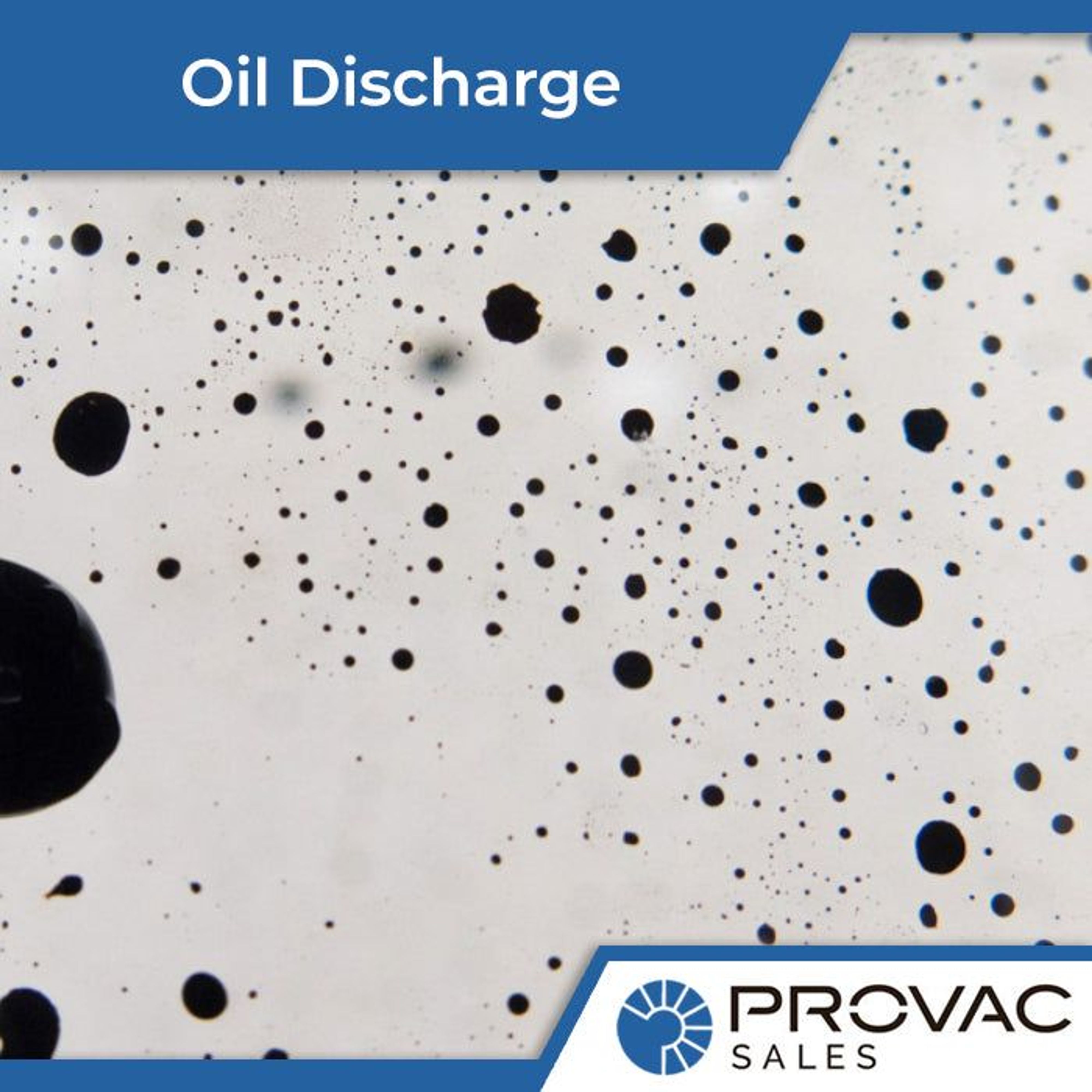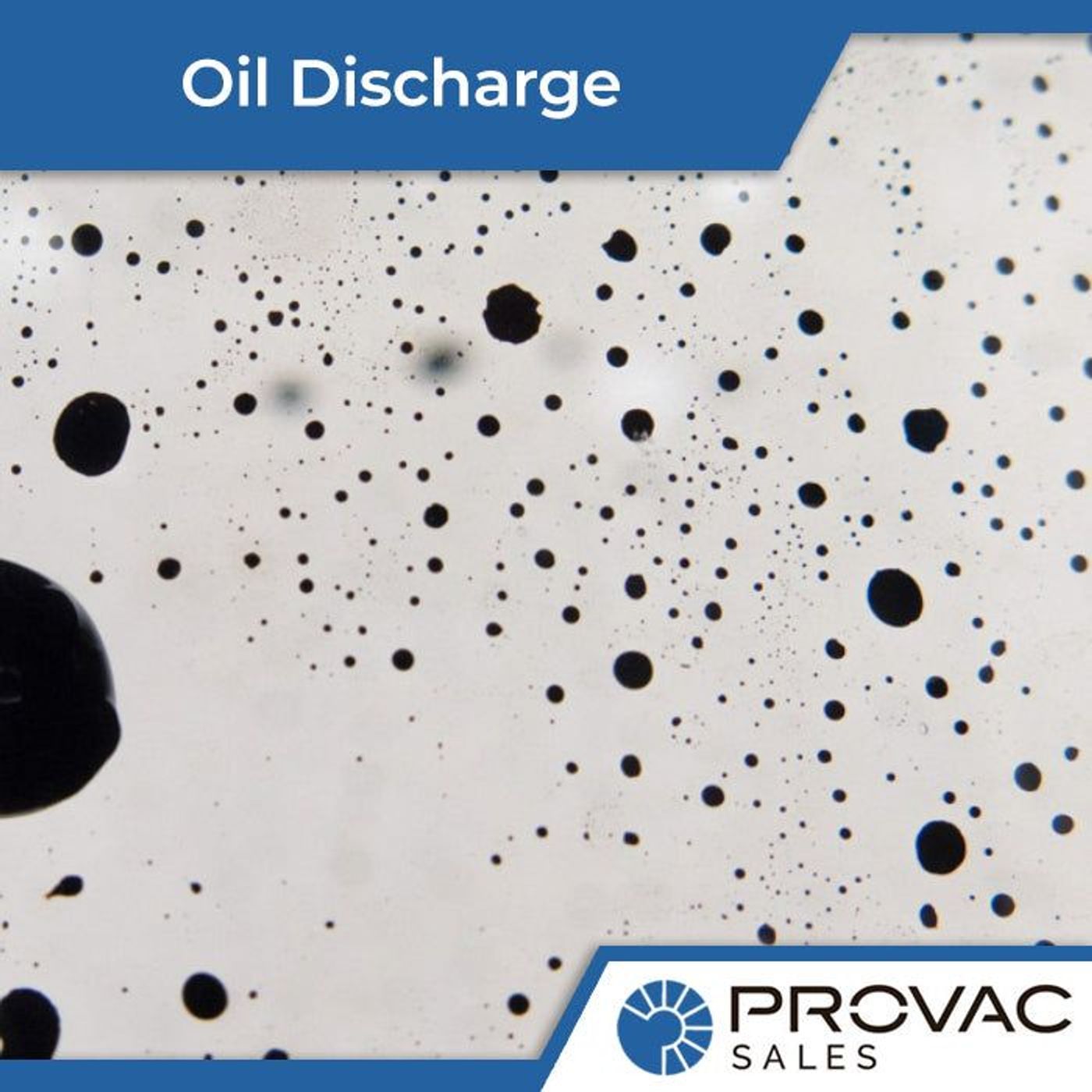Vacuum pumps are essential in many industrial and scientific applications, providing suction for various processes. However, when a vacuum pump starts spitting or discharging oil, it can lead to significant issues, including reduced efficiency, potential equipment damage, and safety hazards.
Understanding the causes and solutions for this problem is crucial for maintaining optimal pump performance and longevity.
Common Causes of Oil Leaks in Vacuum Pumps
Overfilling with Oil
One of the most frequent reasons for a vacuum pump leaking oil is simply having too much oil in the system. When overfilled, excess oil can be forced out through seals, gaskets, or the exhaust, leading to visible leaks or oil mist discharge.
Worn Seals and Gaskets
Over time, the seals and gaskets in a vacuum pump can deteriorate, leading to oil leaks. A vacuum pump gasket leak can occur at various points in the pump assembly, allowing oil to escape.
Clogged Exhaust Filters
If the exhaust filters become clogged, it can cause back pressure in the pump, forcing oil out through various openings. This often results in the vacuum pump blowing oil out exhaust ports.
Contaminated Oil
Oil contamination can lead to increased pressure within the pump, causing oil to be forced out. This is often accompanied by other symptoms, such as vacuum pump smoking.
Mechanical Wear
Internal components of the pump, such as vanes or bearings, can wear over time, leading to increased oil consumption and potential leaks.
Identifying Oil Leak Sources
Visual Inspection
Carefully examine the pump for visible signs of oil leakage. Common areas to check include:
- Shaft seals
- Gasket joints
- Exhaust ports
- Oil sight glass or fill port
Oil Consumption Monitoring
Keep track of oil consumption rates. An unexplained increase in oil usage can indicate a leak, even if not immediately visible.
Vacuum Performance
Reduced vacuum performance can be a symptom of oil leaks, as the pump may not be able to maintain proper pressure.
Solutions for Vacuum Pump Oil Leaks
Proper Oil Level Maintenance
Ensure the pump is filled to the correct oil level as specified by the manufacturer. Overfilling can lead to oil being forced out of the pump.
Regular Seal and Gasket Replacement
Implement a preventive maintenance schedule to replace seals and gaskets before they fail. This can prevent many oil leak issues.
Exhaust Filter Maintenance
Regularly clean or replace exhaust filters to prevent back pressure issues. A vacuum pump oil mist separator can also help reduce oil discharge through the exhaust.
Oil Quality Management
Use the correct type of oil for your pump and change it at recommended intervals. Contaminated oil can cause various issues, including leaks.
Mechanical Repairs
If internal wear is causing oil leaks, professional repair or replacement of worn components may be necessary.
Preventing Future Oil Leaks
Regular Maintenance
Adhere to a strict maintenance schedule, including oil changes, filter replacements, and component inspections.
Proper Operating Procedures
Follow manufacturer guidelines for pump operation, including warm-up procedures and gas ballasting when necessary.
Environmental Considerations
Ensure the pump is operated in an environment within its specified temperature and humidity ranges to prevent premature wear.
Oil Mist Management
Install an oil trap vacuum pump or mist separator to capture oil droplets and prevent them from being discharged into the environment.
When to Seek Professional Help
If you've tried basic troubleshooting and maintenance steps but are still experiencing oil leaks, it may be time to consult a professional. Signs that indicate the need for expert intervention include:
- Persistent leaks despite maintenance efforts
- Unusual noises or vibrations accompanying the oil leak
- Significant loss of vacuum performance
- Visible damage to pump components
Conclusion
Oil leaks in vacuum pumps can be frustrating and potentially costly if not addressed promptly. By understanding the common causes and implementing proper maintenance procedures, many oil leak issues can be prevented or resolved. Regular inspection, proper oil management, and timely replacement of wear components are key to maintaining a leak-free vacuum pump system.
Remember that while some maintenance tasks can be performed by users, complex issues may require professional servicing. Always consult your pump's manual and, when in doubt, seek the expertise of a qualified technician to ensure your vacuum pump continues to operate efficiently and safely.
For more information on vacuum pump maintenance and troubleshooting, explore our resources on vacuum fluids and greases and oil filtration systems. Proper care and attention to your vacuum pump will ensure its longevity and optimal performance in your applications.





